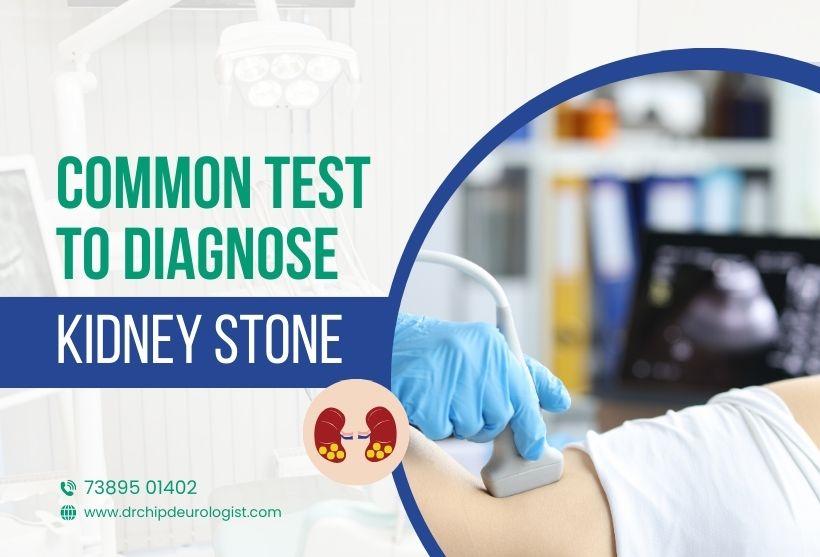Common Test to Diagnose Kidney Stone

Kidney stones are formed due to deposition of minerals and salts that results in stones and can cause severe pain and discomfort. Early diagnosis is crucial in preventing complications such as urinary tract infections, kidney damage, or recurrent stone formation. Identifying kidney stones early allows for timely treatment and lifestyle modifications to reduce future risks. A kidney stone specialist uses a variety of diagnostic tests to detect stones, determine their size and location, and recommend appropriate treatment. Below, we explore the most common tests used for diagnosing kidney stones.
Symptoms That Indicate the Need for Testing
If you experience any of the following symptoms, it may be time to consult a kidney stone specialist for further evaluation:
- Severe pain in the lower back or abdomen: A sharp, cramping pain that comes in waves, often radiating to the groin.
- Frequent urination and pain during urination: A burning sensation or the urge to urinate more often than usual.
- Blood in urine (Hematuria): Urine that appears pink, red, or brown due to the presence of blood.
- Nausea, vomiting, or fever: Signs of infection or inflammation in the urinary tract, which may indicate the presence of kidney stones.
Physical Examination & Medical History
A kidney stone specialist will first conduct a detailed medical history review and physical examination to assess potential risk factors for kidney stones. This includes:
- Discussing past medical conditions: History of kidney stones, metabolic disorders, or family history of kidney stones.
- Checking tenderness in kidney regions: Gentle palpation of the abdomen and back to identify pain points associated with kidney stones.
Laboratory Tests for Kidney Stone Diagnosis
1. Urinalysis (Urine Test)
Detects blood, infection, and crystals that indicate stone formation.
Measures pH levels to determine the type of kidney stones present.
Identifies high levels of minerals, such as calcium or uric acid, that contribute to stone formation.
2. Blood Tests
Measures calcium, uric acid, and creatinine levels to assess kidney function.
It helps identify metabolic imbalances that may contribute to kidney stone development.
Imaging Tests for Accurate Diagnosis
1. X-Ray (Kidney, Ureter, Bladder X-ray)
It helps detect large kidney stones but may not identify smaller or hidden ones.
Provides a quick overview of the urinary tract.
2. Ultrasound Scan
Non-invasive and radiation-free method for detecting stones in the kidneys and urinary tract.
Particularly safe for pregnant women and individuals who need repeated imaging.
3. CT Scan (Computed Tomography)
The most accurate test for detecting kidney stones of all sizes and locations.
Provides detailed imaging of the urinary tract to determine the exact position, size, and composition of rocks.
It helps rule out other conditions that may mimic kidney stone symptoms.
What Happens After Diagnosis?
Once a kidney stone has been diagnosed, a kidney stone specialist will analyze the test results and suggest the most appropriate treatment options. This may include:
- Observation: Small stones may pass naturally with increased hydration and pain management.
- Medications: Prescribed to ease discomfort and prevent future stone formation.
- Medical Procedures: Larger or obstructive stones may require shock wave lithotripsy, ureteroscopy, or surgical removal.
Additionally, patients will receive guidance on preventive measures, including dietary modifications, increased water intake, and lifestyle changes to reduce the recurrence of kidney stones.
Conclusion
Early and accurate diagnosis of kidney stones is essential in preventing severe pain and complications. With the help of a kidney stone specialist, timely testing ensures the best possible treatment plan tailored to each individual. Regular health check-ups, hydration, and dietary adjustments play a key role in kidney stone prevention. If you experience any symptoms, do not hesitate to seek medical attention for proper evaluation and care.
